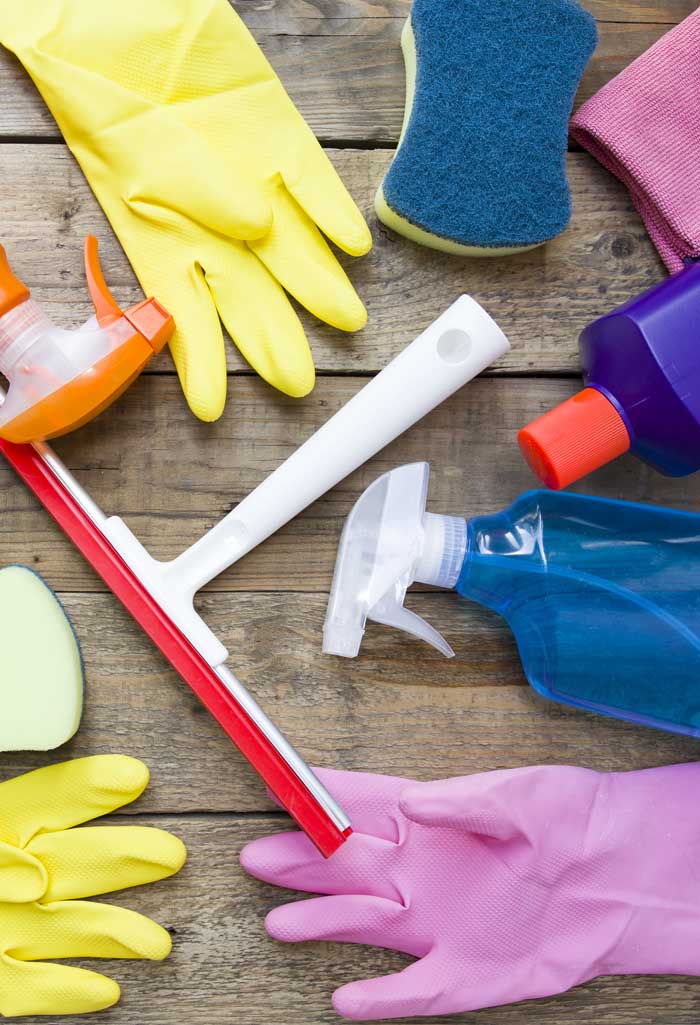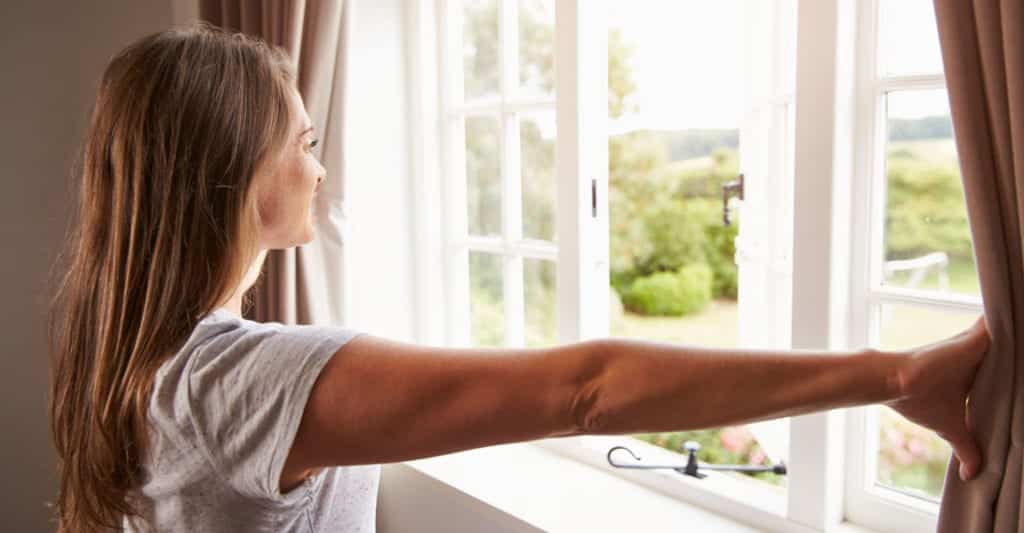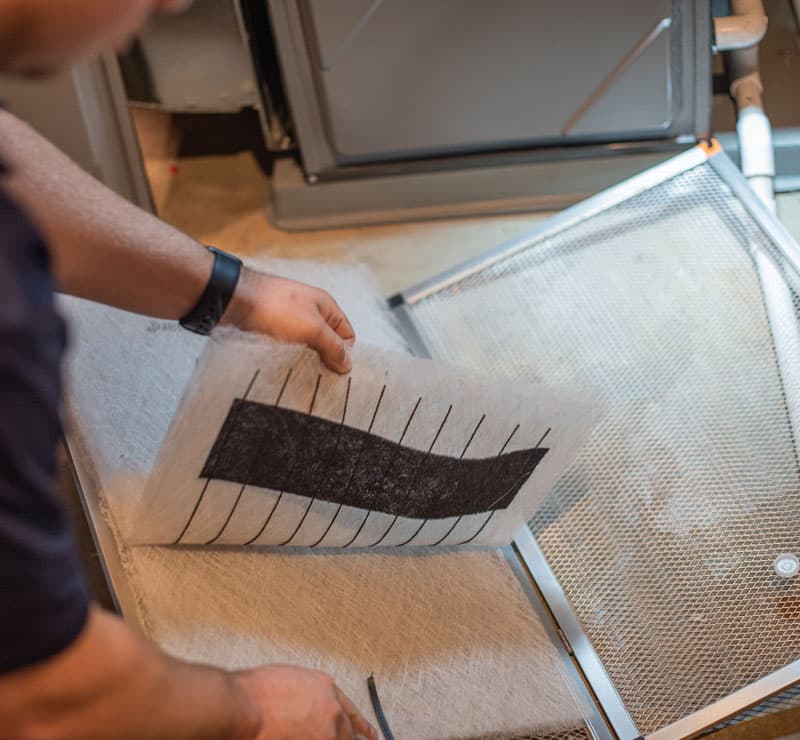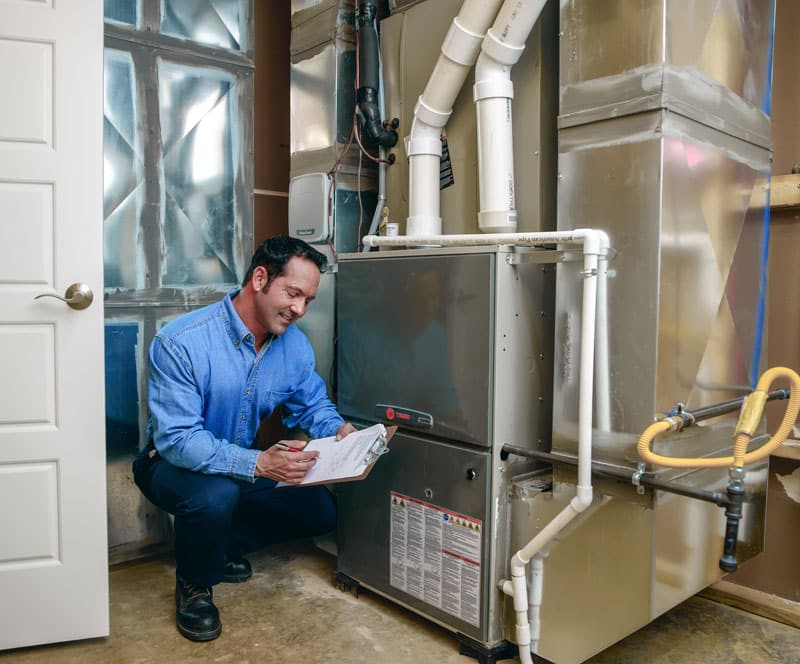Inhale, exhale. Breathing is an essential part of life. However, because our bodies respirate automatically, we don’t always think about the quality of the air we inhale. This is especially true in our homes, where we feel the most at ease.
Trillions of airborne particles are always floating around us, but unlike the dust that appears when the light hits just right, these particles are invisible to the naked eye – and some of them are pollutants that can threaten our health if they are confined in one space.
Mother Nature organically filters the air for us outdoors, but according to the Environmental Protection Agency (EPA), humans spend approximately 90 percent of their time indoors, where pollutants can be 2-5 times higher than outside. The air quality within and around buildings and structures is known as indoor air quality.
Our lungs do their best to filter out harmful substances from our bodies, but ultimately, we need clean air in our environment to stay healthy. Cleaning supplies, paint, dust, mold, smoke, and building materials are common pollutants that diminish the quality of the air we inhale if our homes are improperly ventilated.
People who are most susceptible to adverse effects of indoor pollution are infants, seniors, and people with cardiovascular or respiratory diseases – and these demographics typically spend the most time indoors compared to other groups.
Whether you live in a single-family house, townhome, or apartment, consider the following tips to improve indoor air quality in your home and keep yourself and your family safe.
1. Clean your home regularly
Eliminating pollutants at the source is one of the most effective ways to improve indoor air quality, and that means cleaning your home on a regular basis. Dust mites and pet dander thrive on carpets, rugs, pillows, toys, and upholstered furniture. If not treated, these microscopic pollutants and numerous others can cause asthma, allergies, and other respiratory issues.
Wipe down surfaces, wash your bedding, and vacuum your floors and furniture at least once a week to keep contaminants at bay. Keep in mind that household cleaners and aerosols can diminish air quality, too. Always read product labels to ensure they are safe to use around all members of your home, including pets. When you’re finished cleaning, store your supplies in a safe place.


2. Open your windows (if you can)
Building construction has become airtight over the years, which is good for energy savings. However, this impermeability can sometimes make indoor air feel stale, especially in the winter. A little fresh air can go a long way. Open your windows for a few minutes if the energy in your home feels stagnant.
Of course, this depends on your location – if you live in an area with heavy outdoor pollution, it’s better to keep your windows closed.

3. Change your air filters
Along with ventilation, proper filtration in your home is key to improving indoor air quality. Air filters trap particles, viruses, bacteria, and gasses that circulate through your home’s HVAC system every day, but they need to be changed often to operate effectively. Dirty filters not only harm your air quality; accumulated debris also restricts air flow, which makes your HVAC system work harder to heat and cool your home.
At Bears Home Solutions, we install Solar Air high-efficiency air-cleaning products that protect your air space through three Lines of Defense filtration systems:
1. High-efficiency air cleaners to trap particles like dust and pet dander
2. Germicidal UVC lamps to kill living pollutants like viruses and bacteria
3. Oxidizing UVC systems to trap hazardous gases
Learn more about these filters here.
4. Maintain your HVAC system
Ultimately, maintaining healthy indoor air quality comes down to your HVAC system, as it is what circulates air in your home, controls temperature, and monitors humidity levels. To achieve truly clean indoor air, your HVAC system needs to balance all three factors. An imbalance in humidity levels alone can wreak havoc on the indoor air quality of your home. High humidity levels coupled with warm temperatures – like in our bathrooms – creates a ripe environment for mold and mildew. Meanwhile, low humidity levels cause dry skin, nose, and throat, and increase your risk of contracting the flu.
To keep your HVAC system balanced and running efficiently, have your equipment inspected by a certified technician at least once a year.

Bears Home Solutions provides annual check-ups to your residential HVAC system and air filters through our Bear Care Maintenance Program. Contact us today to request an appointment and ensure your family is breathing the cleanest air possible.



